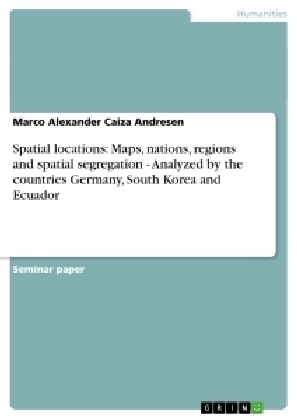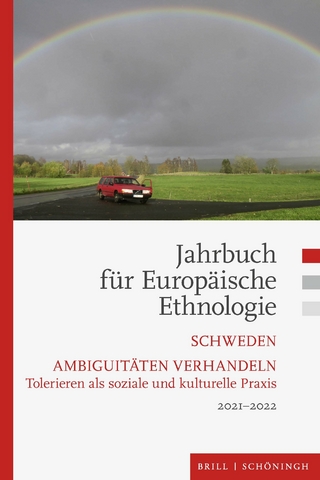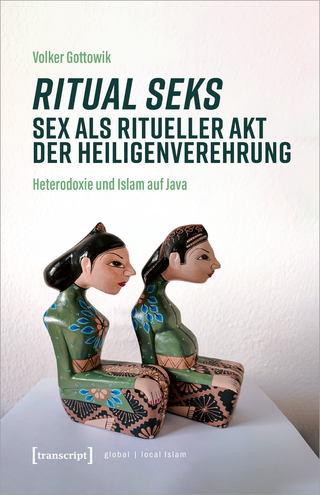
Spatial locations: Maps, nations, regions and spatial segregation - Analyzed by the countries Germany, South Korea and Ecuador
Seiten
2007
|
07003 A. 3. Auflage
GRIN Verlag
978-3-638-80712-8 (ISBN)
GRIN Verlag
978-3-638-80712-8 (ISBN)
- Titel nicht im Sortiment
- Artikel merken
Seminar paper from the year 2004 in the subject Cultural Studies - Basics and Definitions, grade: A, Ewha Womans University (Graduate School of International Studies), course: Comparative Society and Culture , language: English, abstract: This paper deals with three of the original six different topics about spatial locations. Namely, Maps, Nations and Regions and Spatial Segregation. The whole analysis refers solely to three countries: the Federal Republic of Germany, the Republic of Korea and the Republic of Ecuador. Nevertheless, following the example of Carol Delany in her book "Investigating Culture", the most important and most specific examples of these topics of spatial locations within these countries will be given - focusing on concrete examples. The aim of this term paper is to analyze the three countries from three different continents regarding their specific understandings of their map, their nation(s), their region, and spatial segregation inside the country. Thus, one can say that the content of this work refers to the historical part of space / spatial locations within these countries. After an introduction, in the main part, beginning with the description of the countries' maps the analysis starts with the actual situation of the countries' borders, meaning how these countries are geographically located in the world community and how they see themselves there today. Following, an analysis of the creation of the nation in connection with the region where this nation, or these nations, are located will be given, before under the last point of the main part the most important country-specific aspect of spatial segregation within the history of each of these countries will be examined. The result of the whole comparison - cultural equalities, inequalities, and similarities concerning the specific aspects of spatial locations between these countries - will be given in the conclusion of the paper.
Marco A. Caiza Andresen studierte Wirtschaftswissenschaften mit der Studienrichtung International Business Studies und den Schwerpunkten Marketing und Management an der Universität Paderborn und erwarb darin die akademischen Grade des Diplom-Kaufmanns und Masters.
| Sprache | englisch |
|---|---|
| Maße | 148 x 210 mm |
| Gewicht | 100 g |
| Themenwelt | Sozialwissenschaften ► Ethnologie ► Völkerkunde (Naturvölker) |
| Schlagworte | analyzed • Comparative • Culture • Ecuador • Germany • Korea • Maps • Society • South • Spatial |
| ISBN-10 | 3-638-80712-6 / 3638807126 |
| ISBN-13 | 978-3-638-80712-8 / 9783638807128 |
| Zustand | Neuware |
| Haben Sie eine Frage zum Produkt? |
Mehr entdecken
aus dem Bereich
aus dem Bereich
Schweden : Ambiguitäten verhandeln - Tolerieren als soziale und …
Buch | Softcover (2023)
Brill Schöningh (Verlag)
49,90 €
Buch | Softcover (2023)
transcript (Verlag)
54,00 €


